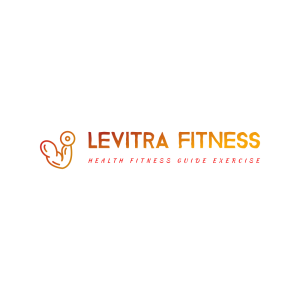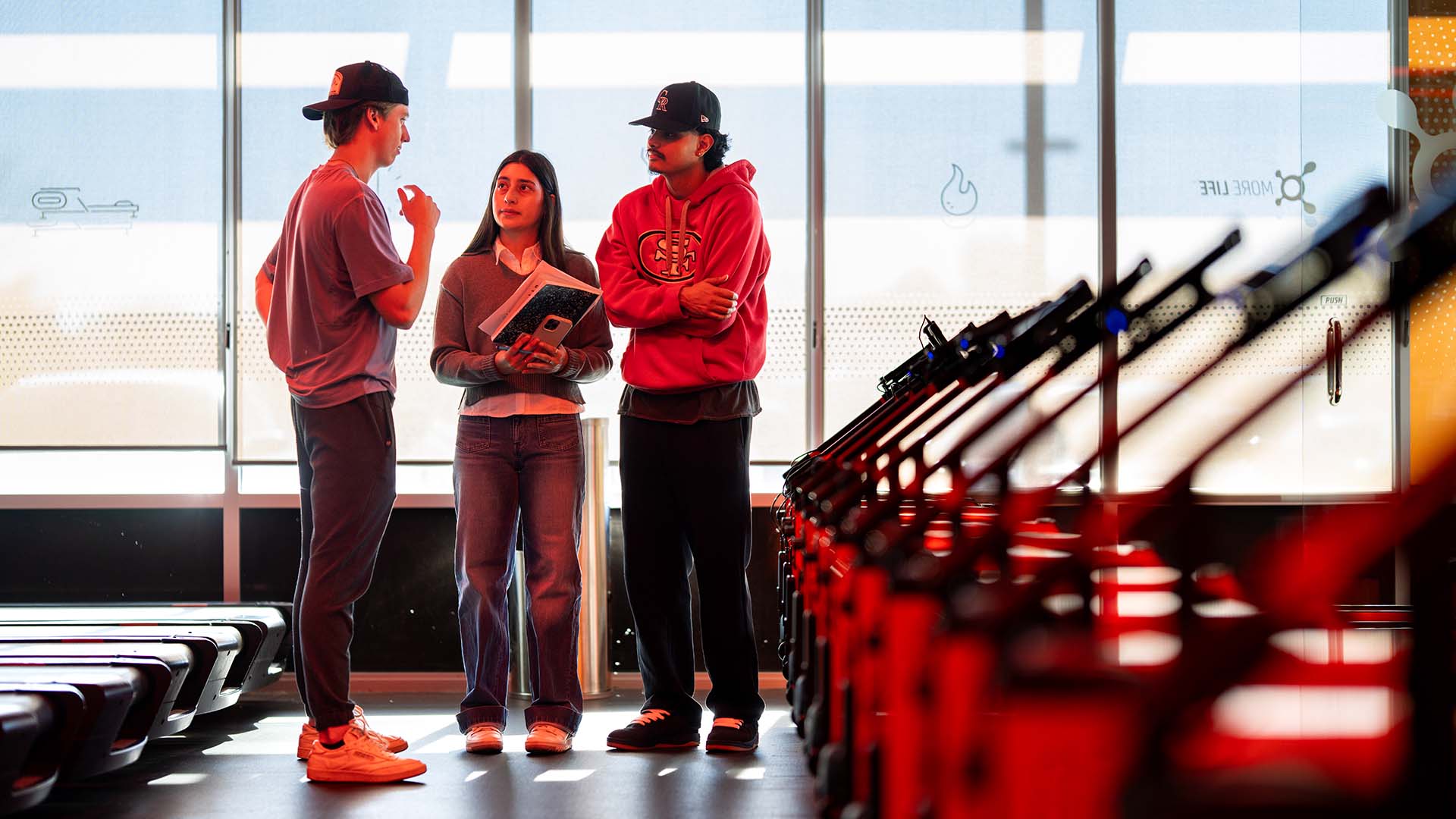When they walked into an Orangetheory Fitness on a recent afternoon, Barry Vera, Jasmine Quinones and Jaden Tomalin didn’t hop on a treadmill or climb on a rowing machine. Instead, the Metropolitan State University of Denver students went straight for the cleaning supply closet and started poking around in mop buckets, assessing toilet paper and evaluating light bulbs.
Eventually, as Vera picked up and examined a hand vacuum, Quinones offered her verdict: “So, a little eco-friendly?”
“I would say so,” Vera said. “They use sustainable brands.”
Which is important. Because the point of this gym visit isn’t fitness. For these students in the Sport Sustainability class, the mission is advancing healthy, environmentally friendly practices in the sports industry.
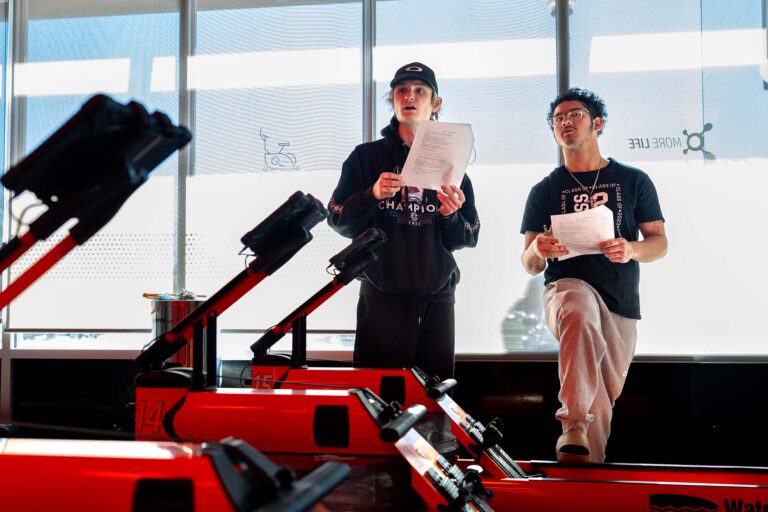
Sustainability in sports is something the students’ instructor, Lincoln Davie, Ph.D., associate professor of Sport Management, is passionate about. His immediate goal is to make the Sport Sustainability class a permanent offering in MSU Denver’s Department of Exercise and Sport Sciences. Beyond that, he is working with colleagues to create an interdisciplinary undergraduate certificate in Sustainable Sport Management. The courses would give students expertise to work with sports facilities and teams to reuse, recycle and generally promote healthy, sustainable practices, incorporating nutrition and exercise science.
Those practices would benefit athletics at all levels, Davie said — from NFL stadiums to local gyms. There’s plenty of room for improvement. NFL fans may not realize that, at a typical stadium, 35 tons of waste can pile up at a typical stadium, according to Integrity Energy. And, fans and athletes consume 100 to 175 megawatt hours of energy during the game. That’s roughly the same energy consumption of 16 American households over an entire year.
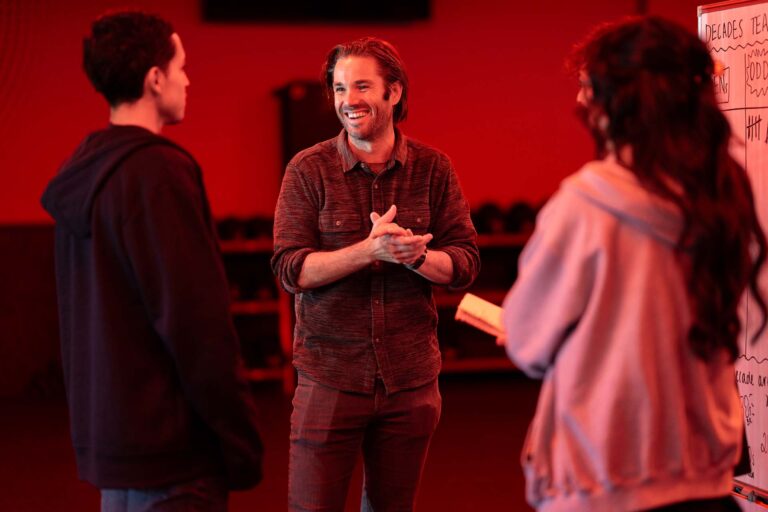
During the visit to Orangetheory, students conducted an audit of sustainable practices — things like offering re-useable towels rather than paper ones, LED light bulbs, Earth-friendly cleaning supplies. “They’re acting as consultants,” Davie said.
Once the “sustainability audit” is over, the class will put together virtual presentations with recommendations Orangetheory can use to reuse, reduce, recycle and generally lower its carbon emissions.
They’ll also create communication strategies, including social media, that would allow Orangetheory to let the public know what it’s doing to protect the planet.
RELATED: Sustainability Hub takes root at MSU Denver
Meanwhile, students in the Plant-Based Cooking class taught by Jennifer Watson, Ph.D., assistant professor of Food and Beverage, will produce plant-based, 30-minute recipes designed for the fitness center to be shared with members looking to eat healthy.
Davie will review his student presentations and pull together recurring themes, which he’ll present to Orangetheory, along with the recipes. “Our goal is to build this relationship,” and bring future students back. “We want to make sure everyone wins,” he said.
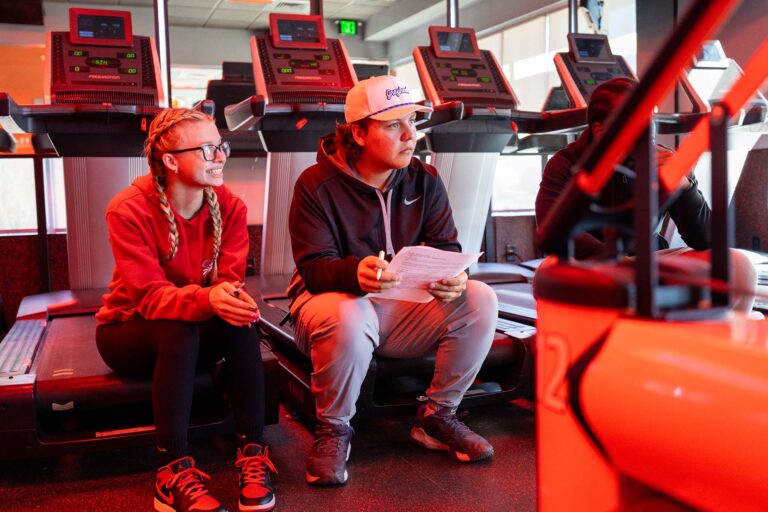
Orangetheory welcomes the suggestions and already incorporates sustainability whenever possible. That’s not only good for the environment, it makes economic sense, said Jackie Nakonecznyj, manager of the location. “We’re aware of the money we spend, so saving and reusing is important.” When the many hours of hard use catch up with rowing machines or treadmills, Orangetheory keeps and stores the parts from broken machines.
“We have to manage the sustainability aspect while also making sure it’s a viable business,” Nakonecznyj said.
That is the balance Davie hopes every sports enterprise — from the Denver Broncos to local gyms — eventually will strive to achieve. And he plans to make sure MSU Denver students and graduates lead the way with multidisciplinary guidance.
Learn more about Exercise and Sport Sciences majors at MSU Denver.
link
